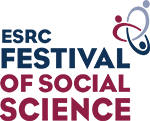Date/Time
09 November 2016
3:00 pm - 4:30 pm
Location
Manchester Museum
Oxford Road
Manchester
M13 9PL
Categories No Categories
 Stop. Embrace reality. Why let other people form your opinion about life, people, and places? Experience. Absorb. Analyse. Share.
Stop. Embrace reality. Why let other people form your opinion about life, people, and places? Experience. Absorb. Analyse. Share.
This is exactly what we have done in studying the constitutional law of different countries: Argentina, Bolivia, Brazil, Chile, Colombia, Costa Rica, Egypt, Ghana, Iran, Kazakhstan, Kenya, Russia. We challenged the established stereotypes held by others. We went ‘into the field’ to form our own experience.
This talk accompanied the exhibition of photographs taken by constitutional law researchers during their field trips. The researchers connected the awe-inspiring images with their experience in these countries and with the conclusions that they have reached through observations and interviews.

Maria Smirnova
Opening the session, Maria Smirnova discussed the organisational, ethical and scientific challenges posed by fieldwork in legal studies. She shared her experience of conducting informal interviews in Russia and Kazakhstan in order to fill the gaps of doctrinal research.
Carina Calabria in her presentation provided an overview of her fieldwork in remote areas of Columbia and Bolivia that has helped her to realise the actual potential of international law in transformation of indigenous communities in these countries. She also shared her views on efficacy of the work of Inter-American Court of Human Rights and the insights that she gained during her internship at this international human rights body.
Elizabeth O’Laughlin shared her experience of studying the use of international law in constitutional reform in Kenya. As a part of her doctoral project she has completed a full-time internship with the Kenya Section of the International Commission of Jurists (ICJ-Kenya). Through this internship she gained a first-hand experience of the work conducted by a dedicated team of local Kenyan lawyers who played a strong role the constitutional reform process. She admitted that her experience with ICJ-Kenya has fundamentally changed the direction of her research. She has concluded that elite outsiders did not mechanistically impose international law on a fragile or democratising Kenya. On the contrary, local demands for it fermented and crystallised in tandem, and international law is being used as a stepping stone enabling legal actors, such as judges and lawyers, to create more enhanced solutions to the nation’s problems.
Wiebke Greef explained the significance of her fieldwork in Iran for her comparative socio-legal study focusing on the question where to locate contemporary Egypt and Iran on a scale of legal self-reference. Her informal interviews conducted at an early stage of her PhD research in Tehran, Yazd, Schiraz, Esfahan, and Qom provided her with a more critical approach to the legal scholarship and enabled her to sharpen skills of critical interpretation regarding the wide range of different viewpoints within the body of academic literature from the field of Iranian Studies. The fieldwork in Iran helped her to understand still prevailing sentiments of rejection towards Western shaped (legal) prescriptions just as discontent with some of the native elites in past and present days. As a result of her immersion into Iranian legal culture she could more fully grasp, intellectually and emotionally understand and internalise the impact of (semi-) colonial impacts on processes of constitutional and judicial reform by means of fieldwork and the reflections on the conducted informal interviews.

Closing the session, Martin Browne highlighted the importance of starting fieldwork as early into one’s PhD research as possible. His research project has been developed in conjunction with a police force, researching how to develop a human rights approach to the policing of football matches. This is a particularly relevant topic due to increasing awareness amongst the general public, of their rights, policing objectives are increasingly trending towards facilitative models, and finally, reduced budgets require reappraisal of police deployments so as to be effective in achieving their main objectives. Martin shared his experiences of conducting observations in the field for the last 3 months, during which he has learned about how a police operation is planned, carried out, and reviewed. Fieldwork has allowed him to experience this process and gain a microscopic insight into that development that wouldn’t be possible through interviews after the event.
As the Q&A session unfolded after the presentations, the audience discussed the definition of the term ‘fieldwork’ and the challenges facing a researcher doing fieldwork in their countries of origin. Also, the challenges of emotional connection with the subject of one’s research were discussed.
We aim to encourage the use of extra-legal sources to study law. Our research has shown that the most striking discoveries about legal systems are made through analysing the way legal norms operate in practice. Through interviews with legal practitioners, observations, and statistical data in the respective polities we were able to unearth particularly unusual patterns of transformation of these societies, as well as the strategies and inhibitions behind these processes.
Naturally, studying constitutional reform in all these countries would have been possible remotely, but totally unfulfilling. At the same time, visiting the polity of research allowed us not just to gain a deeper insight into its unique socio-political makeup, but also to witness first-hand the phenomenal work of so many talented lawyers and activists. Without this insight, we would never have fully appreciated their role in the fight for a new constitutional order, and their continued efforts that go on to ensure its implementation.

Left to right: Martin, Wiebke, Maria, Elizabeth and Carina
Contact: Dr Maria Smirnova (maria.smirnova@manchester.ac.uk)
Related events:
Into the field: The added value of field research in legal studies